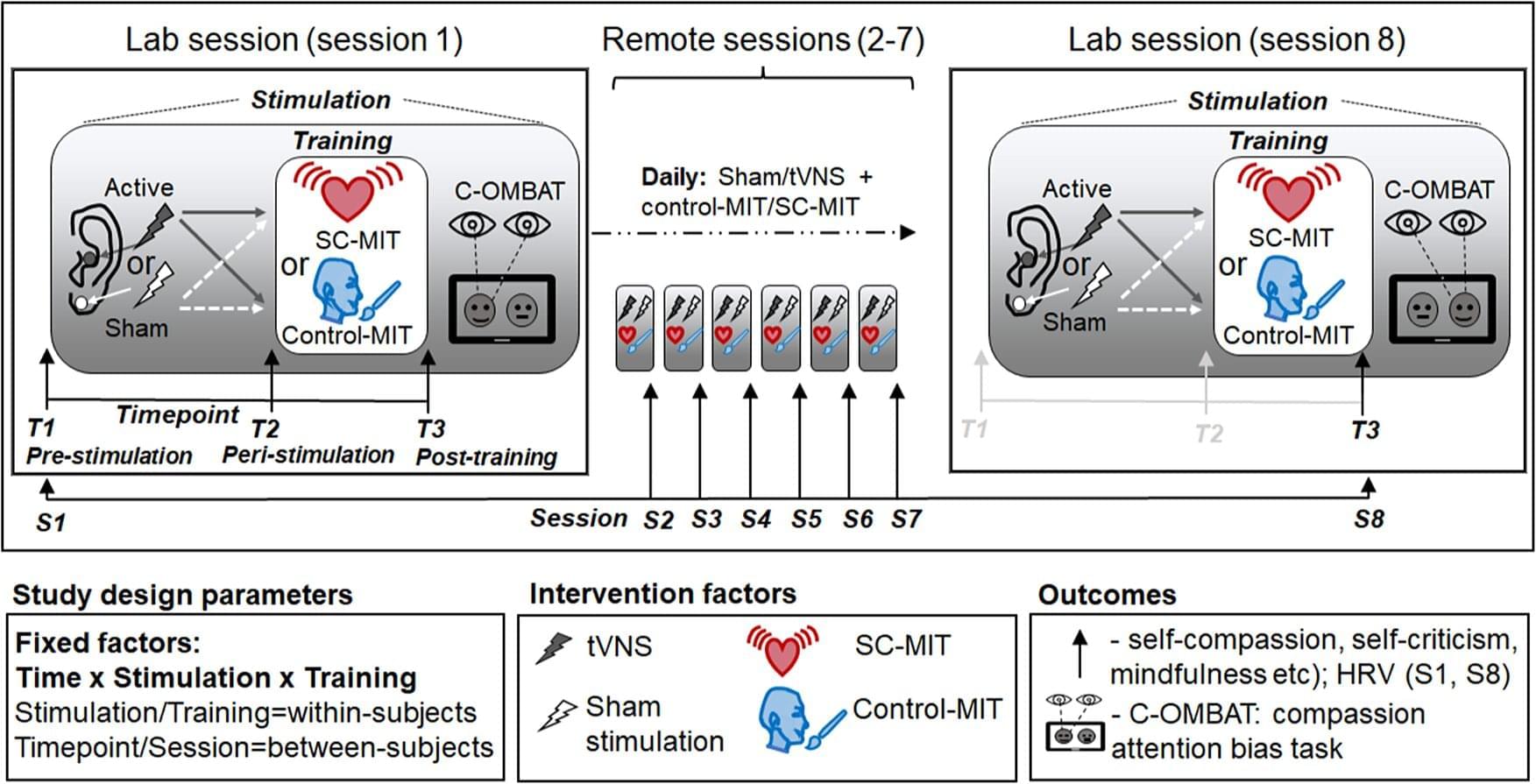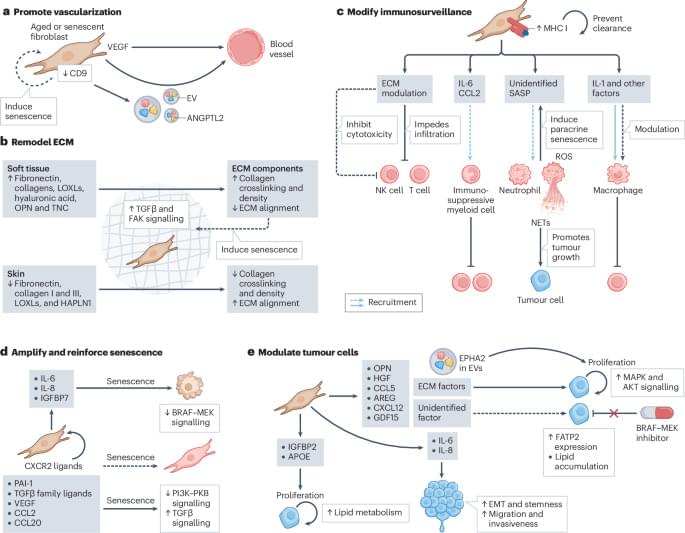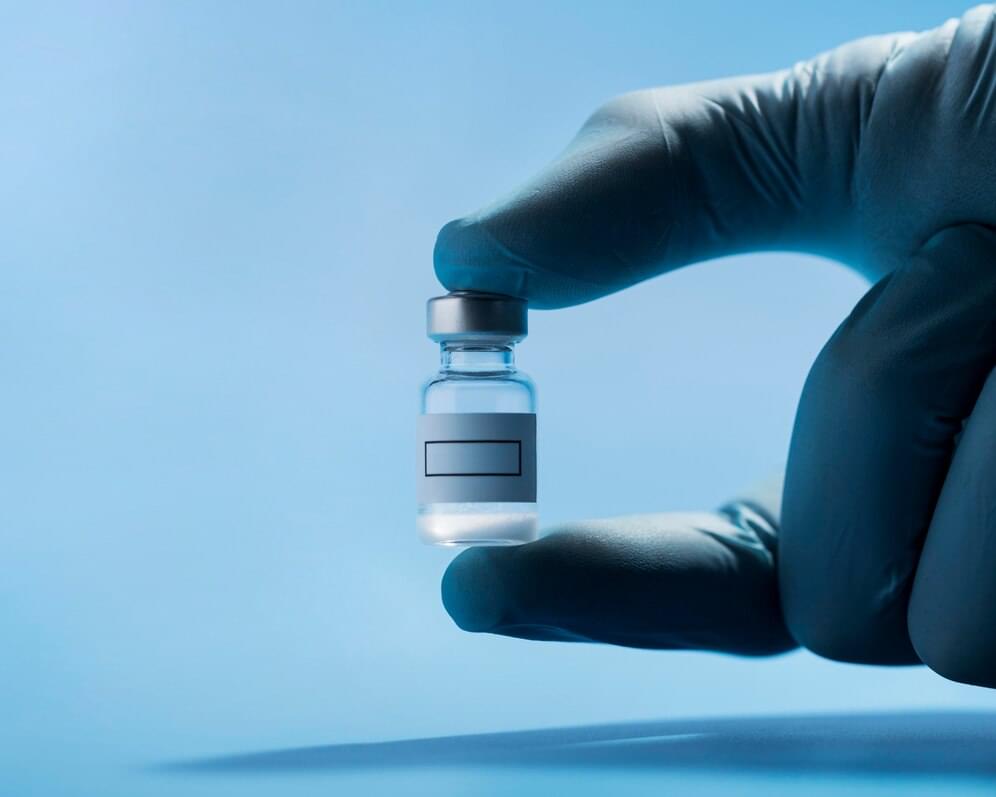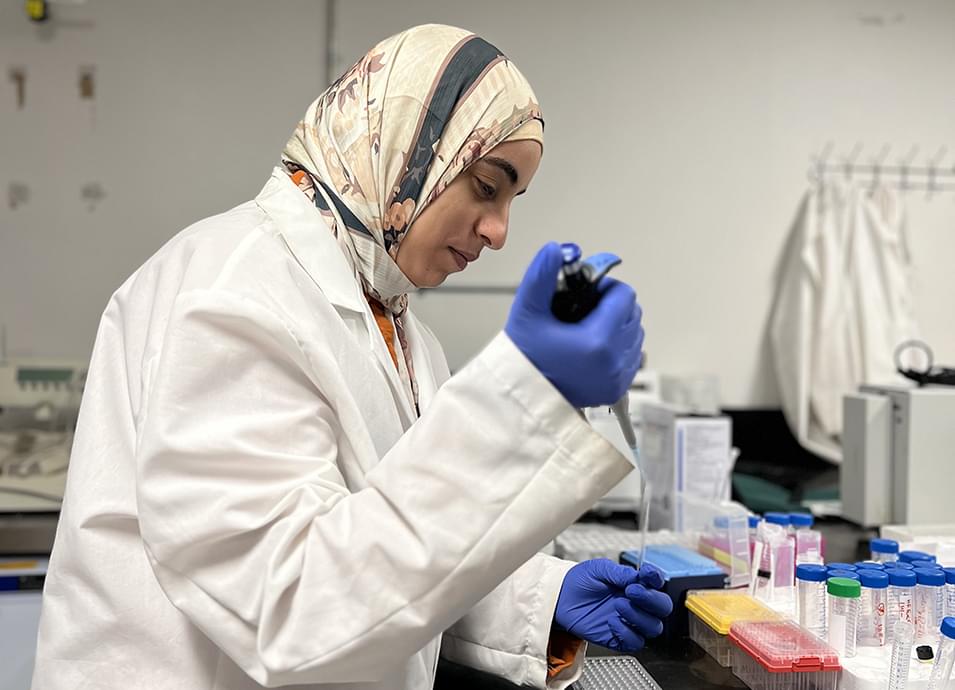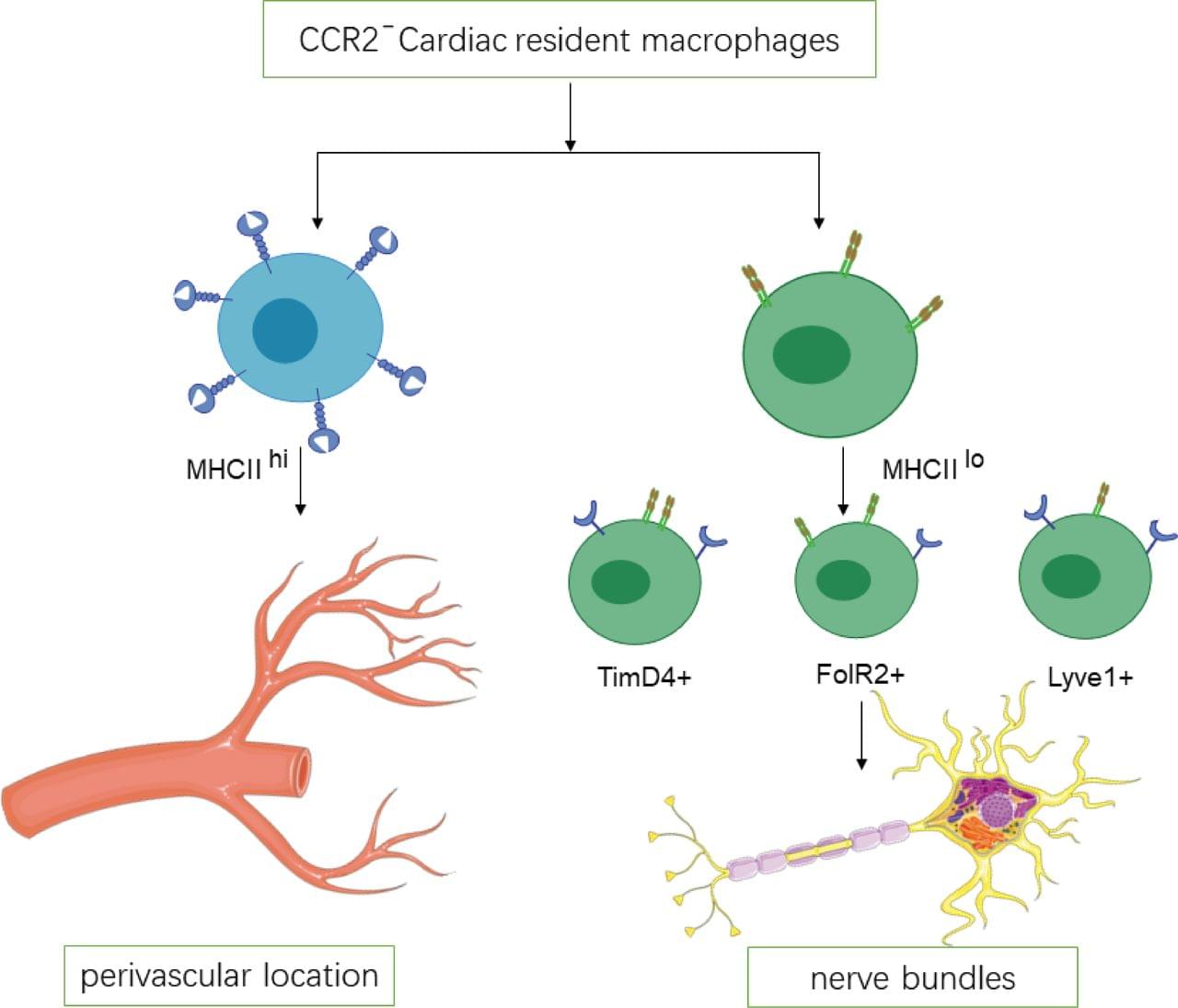Stimulating the vagus nerve with a device attached to the outer ear can help make compassion meditation training more effective at boosting people’s capacity for self-kindness and mindfulness, finds a new study led by University College London (UCL) researchers.
The study, published in Psychological Medicine, adds to evidence of the potential benefits of stimulating this key nerve that connects the brain with major organs in the chest and abdomen.
The vagus nerve plays a crucial role in the “rest-and-digest” (parasympathetic) system, counteracting the “fight-or-flight” (sympathetic) stress response, and allows the brain to communicate with all major organs in the body. By transmitting signals from the body up to the brain, the vagus nerve can also regulate a range of psychological processes, including some involved in social interactions and emotional control.
